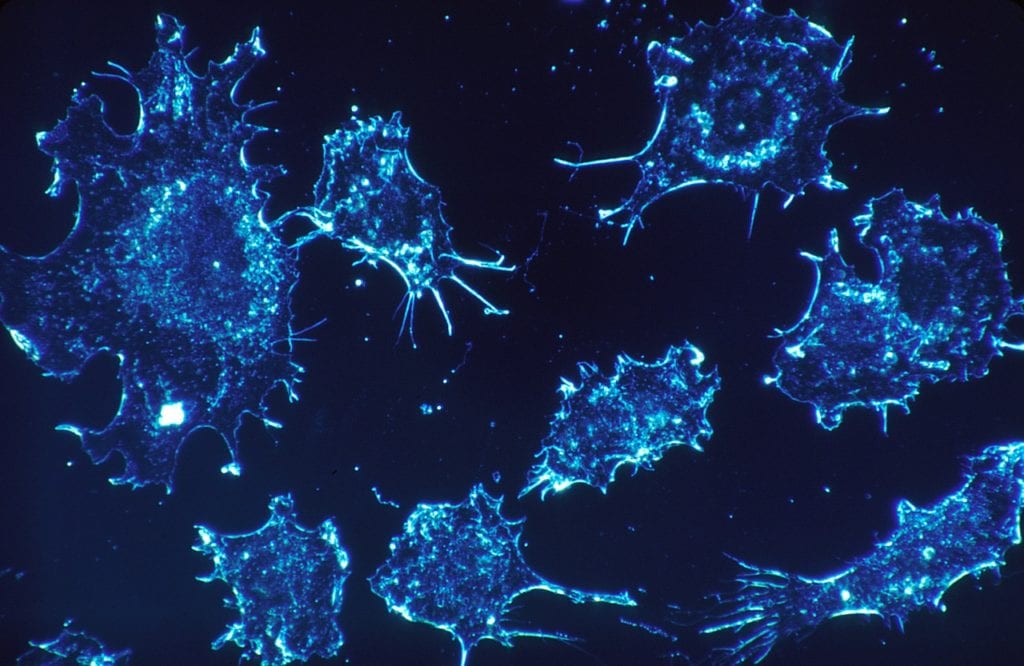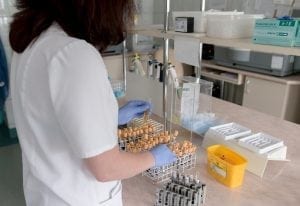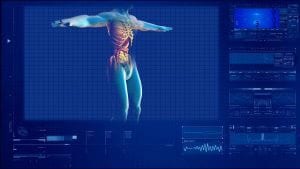According to Medical XPress, researchers have discovered a new potential therapy for patients with pancreatic cancer. By changing the pH balance within cancer cells, researchers could trigger cell death. Read the study in Cancer Discovery.
Pancreatic Cancer
Pancreatic cancer is a cancer which occurs in the pancreas, an organ that aids in food digestion and blood sugar management. The main types are:
- Exocrine pancreatic cancer: Also known as pancreatic adenocarcinoma, exocrine pancreatic cancer is the most common form. Patients with this subset have cancerous cells in the pancreatic ducts.
- Pancreatic neuroendocrine tumors: Also known as Islet cell tumors, pancreatic neuroendocrine tumors are much more rare. This occurs when the pancreatic cells that produce hormones turn cancerous.
Symptoms include diabetes, fatigue, blood clots, jaundice, abdominal pain, and loss of appetite. There is currently no cure, and little to no adequate treatments. This is an aggressive type of cancer. Less than 10% of patients survive for 5 years following diagnosis. Read more about pancreatic cancer.
Research
Most cancer cells require energy to grow and metastasize. To do this, cancerous cells stimulate metabolic pathways, causing the development of excess acid. So scientists questioned whether changing cellular pH could potentially treat different forms of cancer.
Researchers decided to test the efficacy of NHE7 on pancreatic tumors. NHE7 is a sodium-hydrogen exchanger. In layman’s terms, sodium-hydrogen exchangers are proteins that can put sodium ions into a cell while removing hydrogen ions (or vice versa). Normally, sodium-hydrogen exchangers regulate cellular pH level.
However, data showed that patients with pancreatic cancer had higher levels of NHE7. They found that NHE7 was concentrated in the Golgi complex. By pulling in excess hydrogen, the Golgi complex became acidic. The cytoplasm then became alkaline, allowing for cancer cells to thrive.
By repressing NHE7, cellular pH lowered. Thus, cells began to die. Researchers also found that tumors in mice models shrank or stopped growing when NHE7 was repressed. While more research needs to be performed in the future, these results are promising. This could potentially be a treatment for patients with this extremely aggressive cancer.






